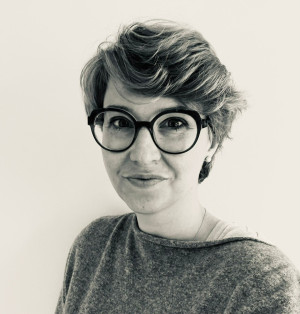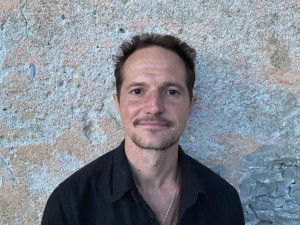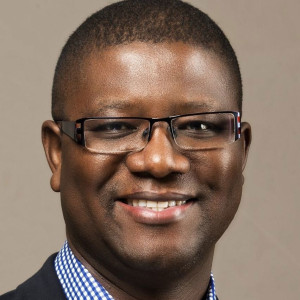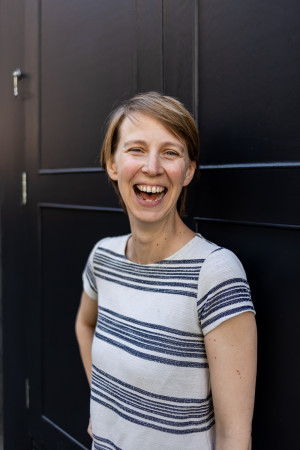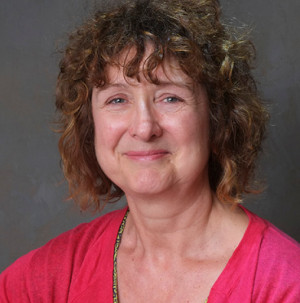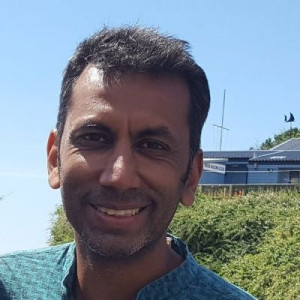Basecamp for Health System Transformation

Learn to rethink health system transformation: revolutionise your ability to lead change in health through our journey into the foundations of systems change practice.
intermediate
Basecamp for Health System Transformation
Summer 2023
Why Basecamp?
Join health system leaders from across Europe, Middle East and Africa to learn to embrace the toughest challenges of our times.
The world’s health systems are in growing crisis, and the world needs health leaders and practitioners who can come together around deepening, complex challenges of our times and envision new possibilities. Leaders who can enable a shift from curative to preventative; from preventative to wellbeing - from disease-centric to resilience-centric thinking. Leaders like you.
How might we build resilience at the individual, community and system level? Join this Basecamp run in partnership with the Johnson & Johnson Foundation to learn new ways to tackle these questions. World-class practitioners will be your guides, bringing a plethora of disciplines from across the health and systems fields to meet the needs of your practice and learning style.
Over the course of six months, we will host you in facilitated workshops, peer learning, applied project-work, reflections, personal inquiry and 1-to-1 coaching. At the School of System Change we believe that the most powerful learning experience exposes you to a broad range of tools, frameworks and approaches in order to help you to find your best way in.
Learn more about our multi-method approach to systems change learning.
What you'll learn
Basecamp is a 6-month part-time journey into the foundations of systems change practice. The course focuses on sharpening our understanding of systems change, using practical approaches to explore dynamics of change, and deepening our appreciation of how worldviews shape our thinking. Content is brought in by at least eight contributors: experienced practitioners from various backgrounds who introduce their frameworks, approaches and perspectives from complexity, systems thinking, futures, transitions, living systems and regenerative practices.
The facilitation team support strengthening your systemic practices and applying these to your challenges, in group work and through individual action learning. You will develop strategies for creating deep change with small interventions. You will learn about how to work differently with others, addressing equity, power and working with conflict as well as enabling collaboration. You will deepen your capacity for systems leadership. The whole process is underpinned by action inquiry, giving you insights into learning and evaluation for systems change.
A core component of the programme is the opportunity to join a peer learning group to apply learning to a live challenge during the sessions. Challenges are sourced among the cohort, with previous groups being formed around topics such as the systemic dynamics that need to be considered to establish and sustain people centered community health systems in Africa.
To ensure you are able to apply your learning to your context, we offer several individual coaching sessions throughout the Basecamp course. This can help you refine your inquiry questions, get guidance on which approaches might work best in your specific situation, and benefit from personal support as you develop your systems leadership qualities.
Learning outcomes
Through this course you will learn to:
- understand systems change as a process & an outcome
- navigate a variety of systemic change framings and approaches
- apply different tools and methods to complex challenges
- see how change happens over time, and at different levels
- see patterns and connections, applied to complex challenges
- see value in engaging with multiple perspectives
As much as you will come away with systems change learning, you’ll also emerge from the experience as changed people - adopting new mindsets, worldviews and approaches to solving problems. And last but not least, you’ll have developed relationships with other like-minded changemakers and belong to a community of practice.
How we host
At the School, we believe there is no one “right” way of doing systems change work, and embrace both multiple methodologies and multiple ways of learning. So we host our Basecamp course with a variety of different formats and ways of engaging with content.
Our experienced facilitators host the cohort throughout the whole process, helping you navigate the wealth of perspectives and practical knowledge and tools shared by our contributors. They also support group work and offer individual coaching sessions.
All/Some sessions will take place on Zoom. Basecamp is designed to be as experiential and social as possible using our years of experience of facilitating online. We ensure sessions are interactive and allow for plenty of small group discussions in breakout rooms. There will be regular breaks as well as some activities to take off-screen, reflective time and invitations to join us in movement to help sustain our energy levels throughout.
We have an online learning platform where pre-reads, session recordings and content are all housed in one place, and a Slack team dedicated to each cohort for live conversation.
Facilitators & Contributors
Facilitators
Producer
Contributors
We are always evolving our content to bring you the cutting-edge of systems change. Contributors for this year’s programmes are being finalised. Last year, content was brought by:
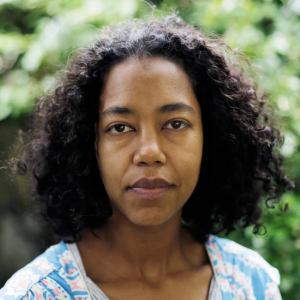
Joy Green
Principal Futurist at Forum for the Future
Contributor
Joy is deeply experienced in using Futures for system change. She was previously the Pr...
As well as Belamie Paddle; Angela Gichaga, Health Financing Alliance; Karolien van Brekel, International Positive Health Institute; Nadia Sandi; Margaret Hannah, International Futures Forum; and Rachna Chowla.
Cohort
Basecamp is the course for you if:
- You are looking to really dive into systems change and develop your practice through learning multiple methods and approaches from across the field
- You are interested in working towards a more just, equitable and regenerative future
- You are ready to dive into the unknown, challenge your assumptions, and commit to the work required to get the most out of the programme
- You have a role with strategic role and/or capacity to experiment and advocate for new models of care within your ecosystem and aspire to spark transformational change in the way health is governed, financed, organised and delivered.
- You have a specific complex health-related challenge, and commit to exploring that challenge (although it may evolve) during your applied learning journey - meaning that you’re up for scoping or planning a new piece of work, re-visiting a strategy, or otherwise shifting or building on your current work as you learn and test out your new skills.
Participants not suitable for the programme include those who work for pharmaceutical or medical device companies, and consulting firms in the health sector.
If you are looking for a shorter introduction to systems change, our Delta course might be just right for you.
Who else will be on the course?
This programme is designed for a cross-section of professionals who can influence health systems at a regional, national or local level. We are not only looking for people who work in healthcare settings, but also those whose work contributes to the wider health of society. We expect that our participants will have varied backgrounds and contexts and this is fine (and in fact desired).
Mirroring system change principles in our cohort, we aim for a group of around twenty people, from organisations such as:
- Public-sector providers of public, community or primary care
- Public-private partnerships in health, health system strengthening, health system transformation
- NGOs focusing on health, capacity building, asset development (or community development where health plays a major role)
- Private healthcare providers interested in exploring resilience nurturing as a new way to deliver health interventions at individual, community or primary care level
- Government and healthcare insurance agencies representatives, assessment departments or policy units
- Professional medical or patient advocacy organisations
Equity & Diversity
We seek to create safe and brave spaces for participants from different backgrounds and lived experience to engage in learning together. We acknowledge the power and responsibility we hold in our role as a convenor and learning provider, placing multiple ways of knowing and awareness of difference as fundamental design principles in our programmes.
Read more about our commitment and journey around equity and differenc
Accessibility
If you will need additional support for your wellbeing or access needs, then please let the team know as soon as possible, so we can factor this into our session design. You can let us know in the application form or email us at [email protected] - we are happy to arrange a call to discuss how we can support your learning. Our producer, Jasmine, will also be on hand throughout the course if you have any questions or concerns to raise.
Date & Time
Course dates
- Information sessions
- Application deadline: Mon 10 April 2023, 10:00 BST
- Course kick-off: 15-17 May 2023
- Intensive sessions: 22-25 May 2023
- Fieldwork in self-organised teams
- Mid-term gathering: 21-23 August 2023
- Online sessions & 1-2-1 coaching
- Intensive sessions: 25-29 September 2023
- Online sessions & 1-2-1 coaching
- Closing sessions: 23-24 November 2023
Online learning cohort time will total around 70 hours over the 6 months, with some intensive sessions over several consecutive days, and regular short sessions inbetween.
Timing
All online sessions will be held within 09:00-13:00 BST / 10:00-14:00 CEST / 10:00-14:00 CAT.
Participants must commit to participating in all of the online sessions and contributing constructively to peer group learning, as much as possible. You can join from anywhere in the world, so long as you can attend the times listed above.
How much time will I need to commit outside of sessions?
We typically recommend around 3-5 hours per week between intensive sessions. Please note that this includes group work organised with your team, as well as your individual coaching sessions, on top of time you spend taking the content into your work or even mulling it over in the shower! We give this estimation as a rough guide so you know what to expect - this is very much a “the more you put in, the more you get out” situation.
A note on intensive sessions
To get the most out of this experience, we ask you to do everything you can to arrange your schedule so you can be fully present for all sessions. Please note that this is to support the learning experience of your fellow participants, as well as your own. There is a space to let us know about clashes in your diary in the application form.
Course Fees
The fees for this course are subsidised thanks to the contribution of our programme partner the Johnson & Johnson Foundation. Places are limited, and successful applicants will be asked to make a contribution of £500 each to secure their place on the programme.
In the event of unjustified absence or drop out, you will be requested to pay back the value of the full course fee (£7500 / £5250 / £3750 depending on your organisation type) to the School of System Change.
The School of System Change team will manage the selection of participants who apply to the programme. We aim for diversity across the cohort to include a variety of perspectives in health systems – from multiple types of organisation contexts, worldviews & experiences. As part of this, Government Officials and Health Care Professionals can apply to the programme and will have to meet the relevant selection criteria and comply with all applicable rules and, if selected, would comprise a small proportion of a wider mix of participants.
Info Sessions
Apply
About the Johnson & Johnson Foundation

The Johnson & Johnson Foundation focuses its work through the Johnson & Johnson Center for Health Worker Innovation (CHWI). Its mission is to support and champion the people on the front lines who are at the heart of delivering care. Together with its partners, the Foundation is committed to health system transformation. It focuses on advocating and supporting new models of care that demonstrate a shift from traditional curative healthcare delivery models to new community health models that cultivate resilience and promote holistic health for individuals, communities, and systems.
Contact Us
Are you interested in speaking with one of our team to answer any specific questions you may have? Please email us at [email protected] and we'll be in touch to help. We look forward to hearing from you!





